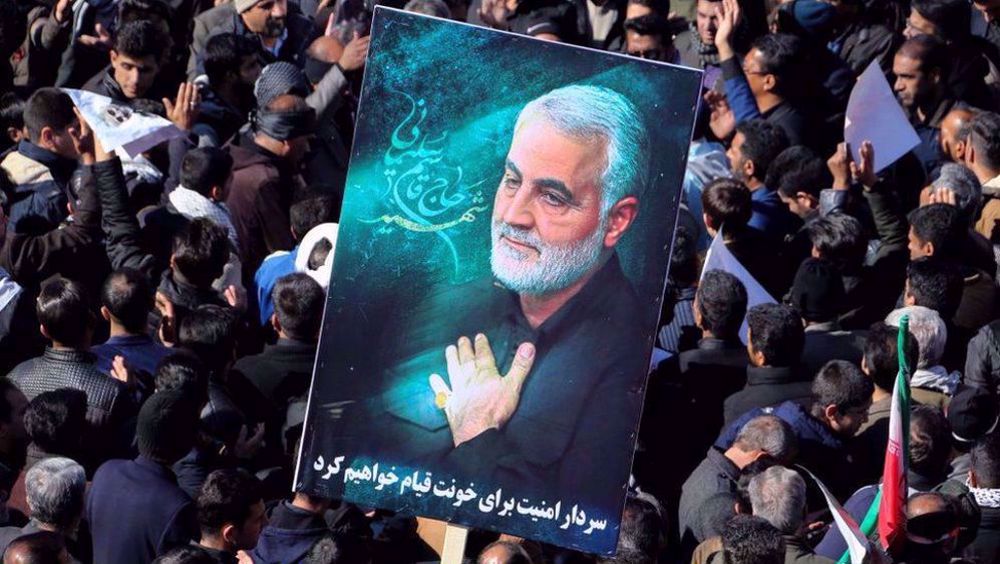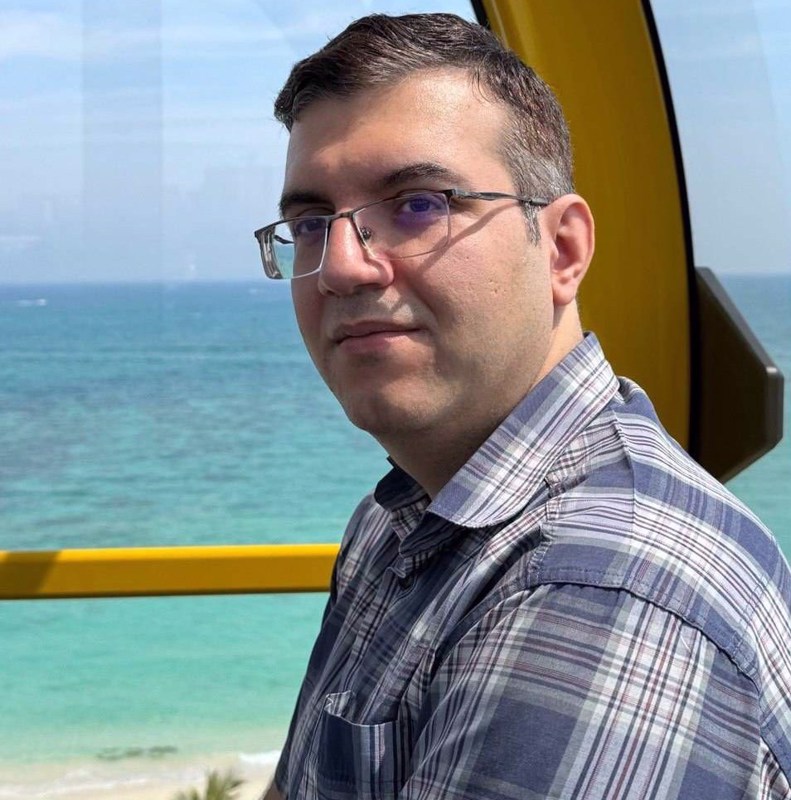In letter to UN chief, Iran says will pursue General Soleimani’s assassination case to bring perpetrators, abettors to justice
The head of the Iranian mission to the United Nations says the country reserves the right to pursue the case of the 2020 assassination by the US government of General Qassem Soleimani, the then commander of the Quds Force of the Islamic Revolution Guard Corps.
Amir Saeid Iravani said in a letter addressed to UN Secretary General Antonio Guterres on Tuesday that Iran will pursue legal means to hold accountable the countries, organizations and individuals that played a role in General Soleimani’s assassination in a US drone strike outside the main airport in the Iraqi capital Baghdad in January 2020.
“The Islamic Republic of Iran reserves its legitimate right under international law to pursue legal proceedings aimed at holding accountable and bringing to justice the perpetrators, organizers, and sponsors of this reprehensible act of terrorism,” Iravani said in the letter.
The diplomat also reiterated that the United States had breached its international obligations by carrying out the “cowardly assassination” of General Soleimani, saying the act constituted a flagrant violation of the international law.
He said that the Israeli regime had played a role in the assassination based on statements issued by former Israeli intelligence officials, adding the US had also used the Ramstein Airbase in Germany for carrying out the assassination.
“Aside from the United States, all those who by any means had aided, abetted, or otherwise assisted and supported [the assassination], whether directly or indirectly, bear responsibility for their involvement in the perpetration of this terrorist crime,” read Iravani’s letter which was published by the official news agency IRNA.
Iran also sent a letter to the Office of United Nations High Commissioner for Human Rights (OHCHR) on Tuesday, saying the country will continue its efforts to bring to justice the perpetrators and abettors of General Soleimani’s assassination.
In the letter to the OHCHR, Iran’s Permanent Mission to the United Nations Office at Geneva said that the assassination was a violation of international humanitarian law as it eliminated a prominent element of the regional fight against terrorism.
China slams US as ‘war-addicted’ threat to global security
China ‘firmly opposes’ US military aid to Taiwan
VIDEO | Press TV's News Headlines
President Yoon Suk Yeol to be removed from office
At least 19 Gazans killed by Israeli airstrikes since dawn: Medics
Leader: Iran neither has nor needs proxy forces
US fighter aircraft shot down ‘in friendly fire’ amid aggression on Yemen
Yemeni FM: Israel’s sponsors accountable for ongoing aggression on Sana’a











 This makes it easy to access the Press TV website
This makes it easy to access the Press TV website